For our Cleft Pakistan project for children with cleft lip and palate in Pakistan, we cooperate with the large Pakistani NGO Al Mustafa Welfare Society. The organization runs many medical and other aid projects throughout the country. Recently, it has opened a new hospital in the town of Dhodial in northwest Pakistan. Our Cleft Pakistan team, under project leader and head surgeon Professor Dr. Ashraf Ganatra, took this opportunity to conduct a treatment mission for patients with cleft lip and palate there from September 29 to October 1, 2022.
The team consisted of 23 members: three surgeons, two anesthesiologists, ten operating room staff, two nurses, two social workers, a project manager, a camp manager, a photographer, and a media coordinator. Dhodial is located in the province of Khyber Pakhtunkhwa in northern Pakistan, and our team is based in the metropolis of Karachi in the province of Sindh in the south: this meant a distance of more than 1,600 kilometers, requiring a 25-hour journey by bus that began on September 27 at Al Mustafa Hospital Karachi, the “home base” of our team, and ended on September 28 at Al Mustafa Hospital Dhodial.
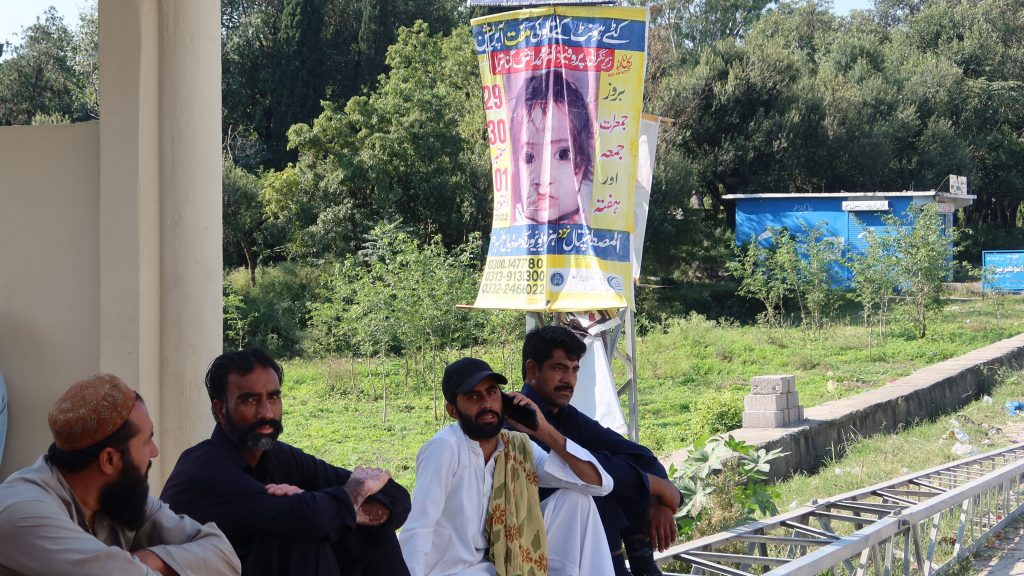
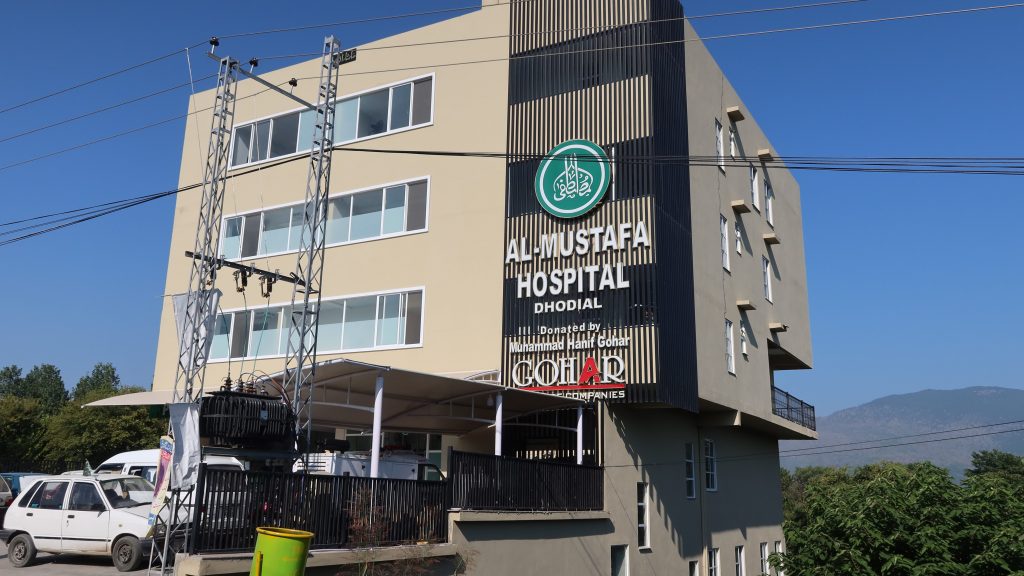
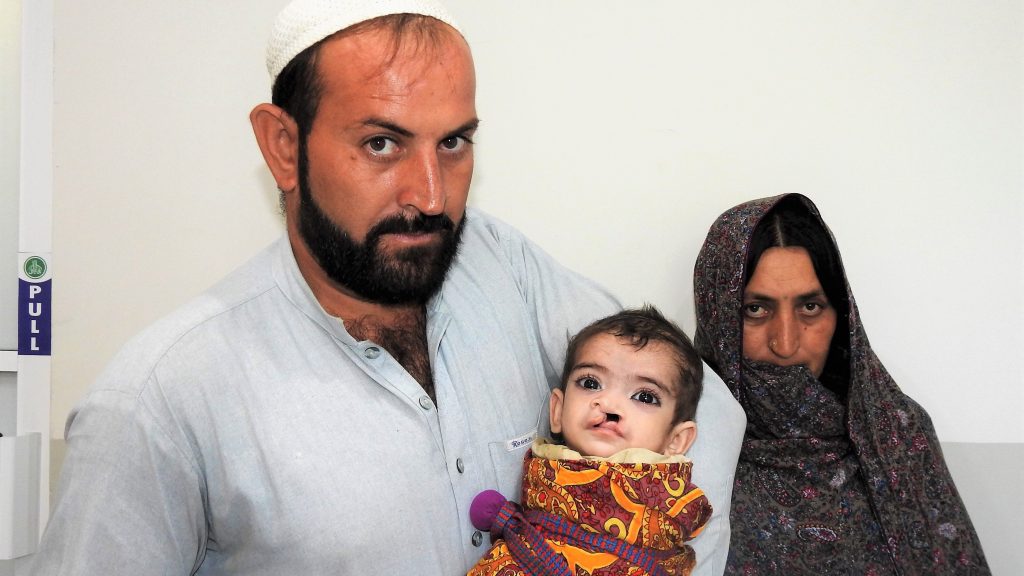
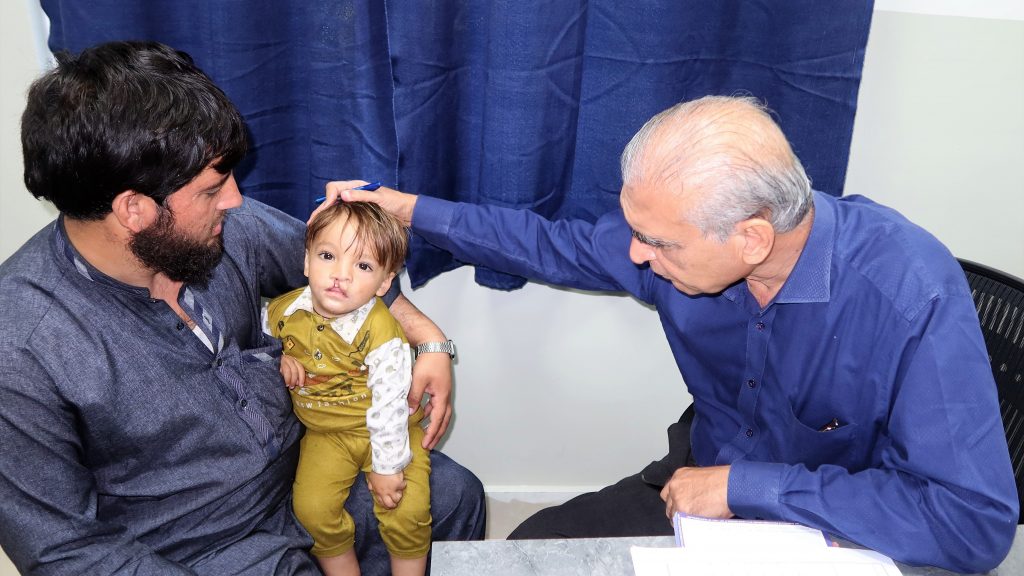
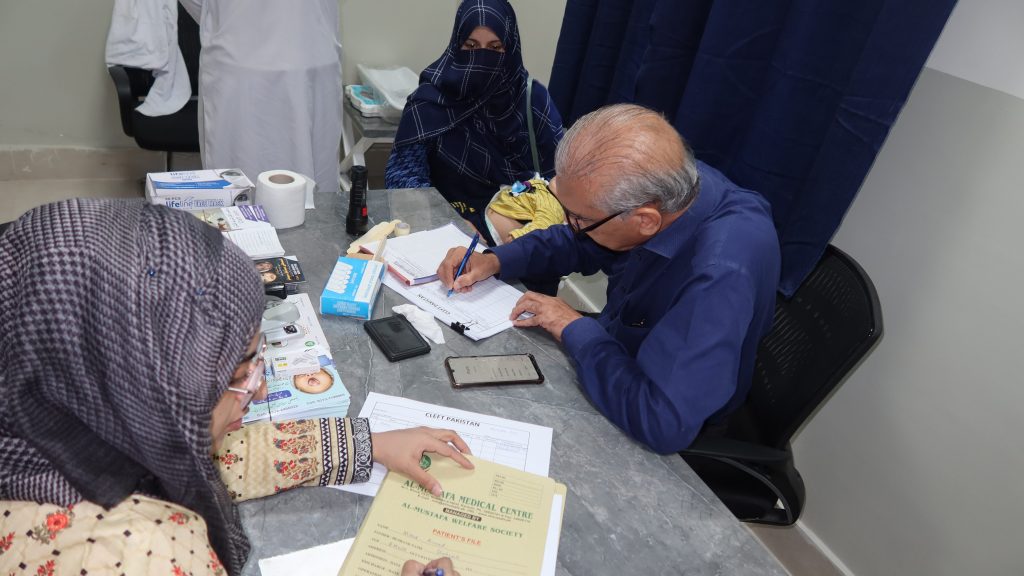
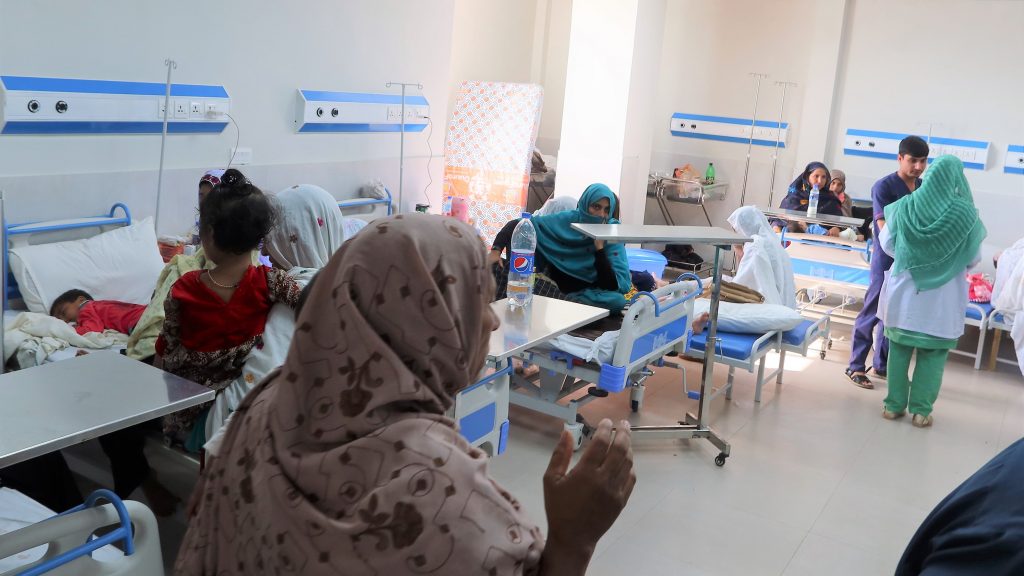
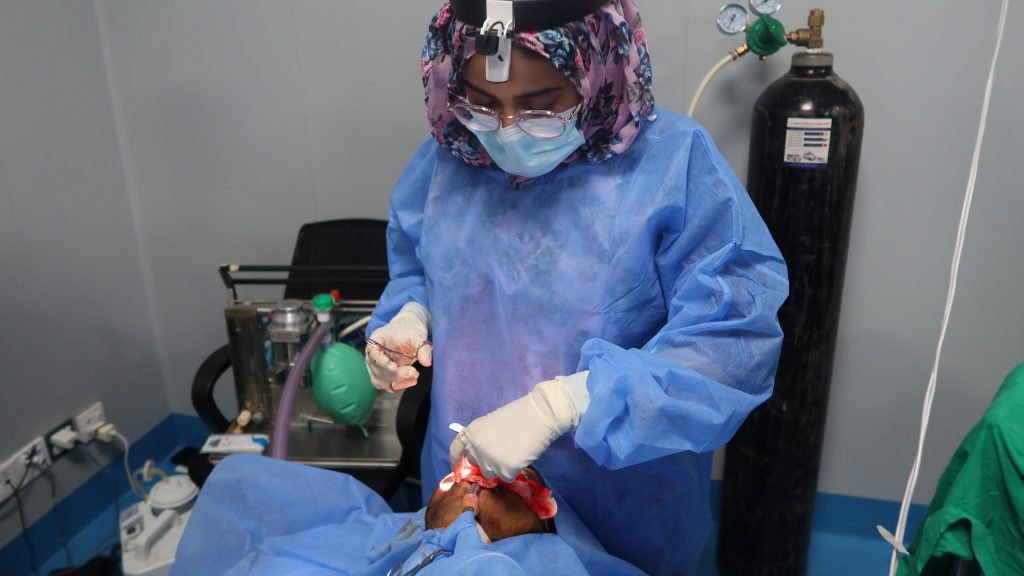
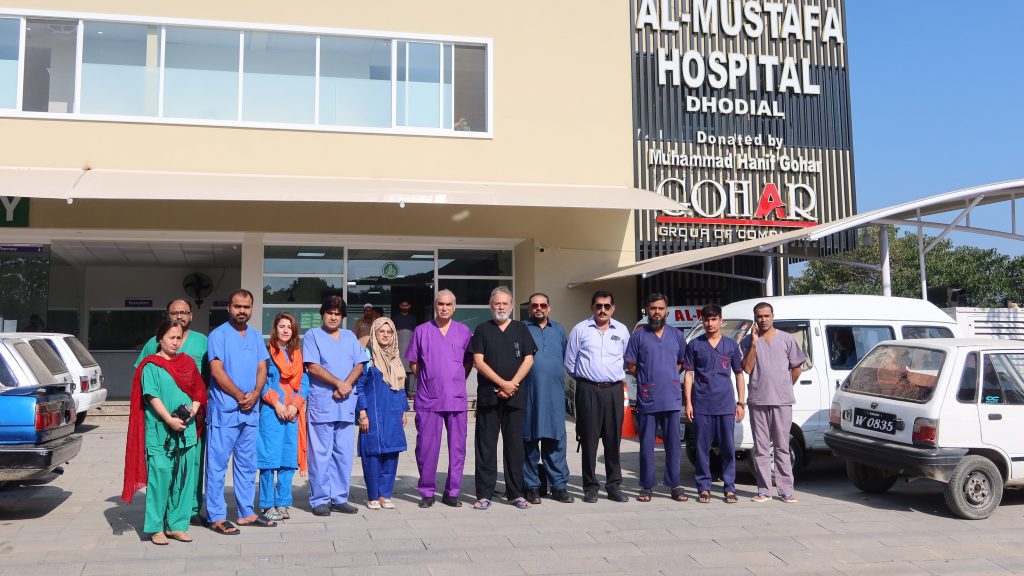
In addition to new patients, patients who had previously received surgery from Professor Ganatra and his team in Karachi also showed up for follow-up care. They and their families were delighted that Professor Ganatra and his team had come all the way from Karachi to Dhodial. The patients, who had traveled from cities all over the province, were carefully examined. Not all of them had the health status necessary for safe surgery. Ultimately, 38 patients ranging in age from 5 months to 28 years received surgery.
Of these 38 patients, 13 had cleft lip and 17 had cleft palate. Other surgeries were also performed: a pharyngoplasty, six lip-nose revisions and a rhinoplasty. Such corrective surgeries may become necessary if scar tissue from the initial surgeries does not grow optimally during puberty. This can result in problems with function (nasal breathing, speech, etc.) as well as psychological consequences of aesthetic problems (deformation of the lip, for example).
Two team members traveled to do follow-up appointments one week later. All 38 patients showed up for this follow-up appointment. They were examined in detail, and the surgical sutures were pulled. The patients were in good condition – and all very happy!
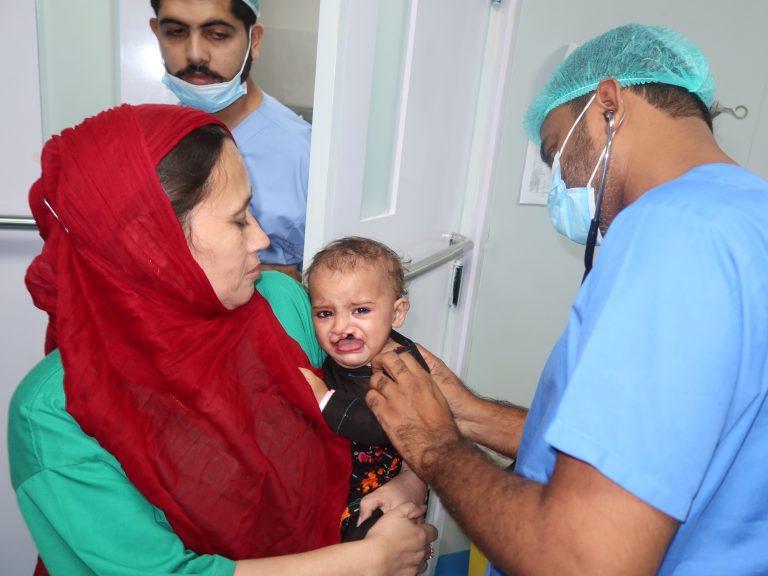
The majority of the children we provide surgery for come from the poorest families. Their parents cannot afford the treatment and depend on our help. Donate here to ensure that this essential help for needy children with cleft malformation continues. So that the children have a chance to leave their undeserved hardship behind and live a better life.

